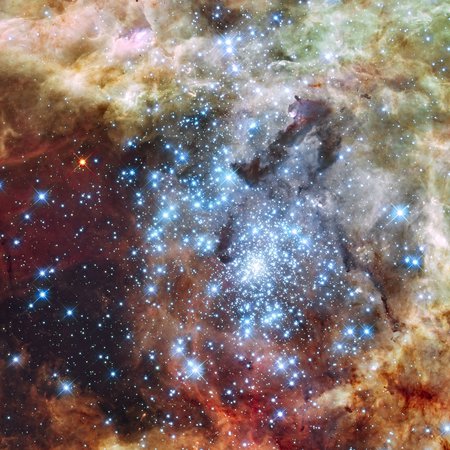New Season of Babelsberg Starry Nights starts online
On Thursday, 15 October 2020, the Babelsberg Starry Nights of the Leibniz Institute for Astrophysics Potsdam (AIP) will begin again. For the time being, the popular lecture series will not take place on the research campus in Babelsberg, but will be hosted on the YouTube channel "Urknall, Weltall und das Leben". Please note that the lectures will be given in German.

Cosmic X-ray- echo, observed with eROSITA.
Credit: G. Lamer, D. MellaDr. Axel Schwope will begin with a lecture on "The new image of the X-ray sky: eROSITA one year in space". After a successful launch and a slightly bumpy commissioning phase, the eROSITA X-ray telescope has produced its first complete map of the X-ray sky. In just half a year, it found more X-ray objects in the sky than all other telescopes combined over the last 60 years. Although the scientific evaluation has only just begun, Axel Schwope can already report on some initial fascinating results and astonishing discoveries.
This season, the Babelsberg Starry Nights will not take place on site at the AIP, but will come straight to your home: on the 3rd Thursday of each month from 6 p.m. the lectures are available at
https://www.aip.de/babelsberger-sternennaechte
and can be viewed at any time afterwards.
Images
Cosmic X-ray- echo, observed with eROSITA.
Big screen size [1000 x 1000, 110 KB]
Original size [1575 x 1575, 210 KB]





